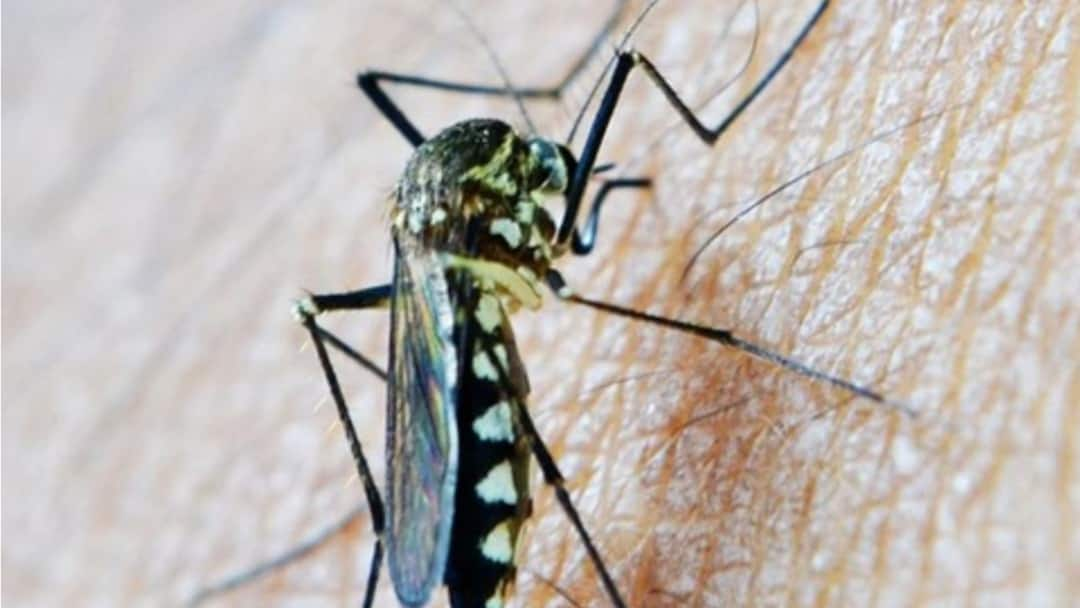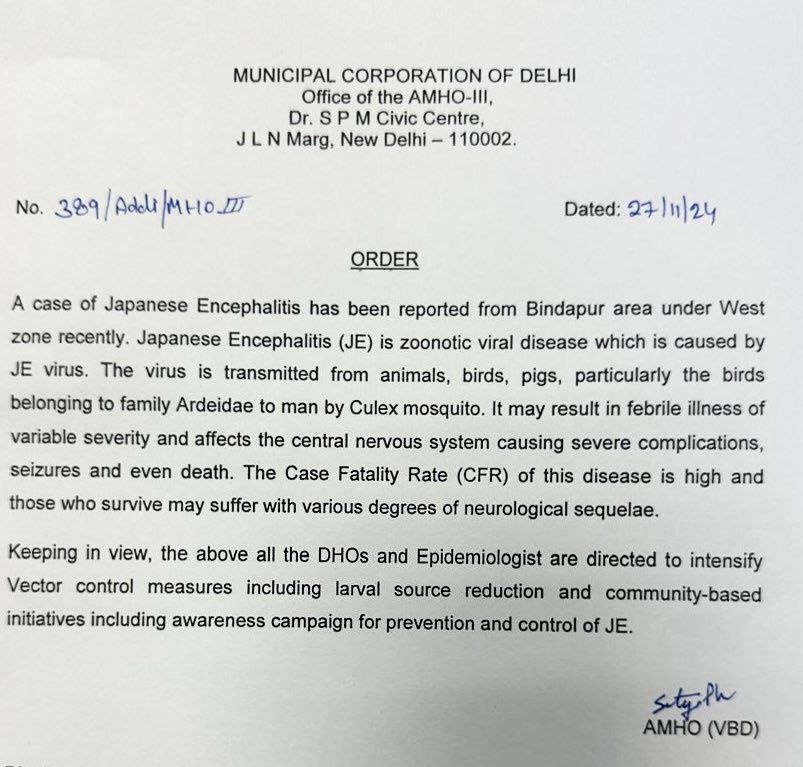Delhi Reports Japanese Encephalitis Case After 10 Years. What Is The Viral Infection?
The World Health Organization described the Japanese encephalitis virus (JEV) as a flavivirus related to dengue, yellow fever and West Nile viruses.

Delhi has reported a case of Japanese Encephalitis after around 10 years. The patient, a 72-year-old man, lives in West Delhi's Bindapur area. The patient, who was admitted to AIIMS on November 3, tested positive for the virus during his hospital stay. He suffers from chronic conditions, including diabetes and coronary artery disease, and was discharged on November 15 after receiving care.
"Keeping this in view, all District Health Officers (DHOs) and Epidemiologists are directed to intensify vector control measures, including larval source reduction, and implement community-based initiatives such as awareness campaigns for the prevention and control of JE," read an order issued by the Municipal Health Office.

The virus was reported in the city in 2011, when 14 cases were reported, as per the New Indian Express. That year marked the first time the disease was reported in the city, prompting investigations to determine whether the cases were imported or indigenous.
Over 60 children infected with the virus died at BRD Medical College in Gorakhpur in 2017. However, many of these deaths were later attributed to a lack of oxygen supply.
What Is Japanese Encephalitis?
The World Health Organization described the Japanese encephalitis virus (JEV) as a flavivirus related to dengue, yellow fever and West Nile viruses, and is spread by mosquitoes. Although symptomatic Japanese encephalitis (JE) is rare, the case-fatality rate among those with encephalitis can be as high as 30%. Permanent neurologic, cognitive and behavioural sequelae occur in 30–50% of those with encephalitis. The majority of cases occur in children below 15 years of age.
Twenty-four countries in the WHO South-East Asia and Western Pacific Regions have endemic JEV transmission, exposing more than 3 billion people to risks of infection. As per the WHO, there is no cure for the disease. Treatment is focused on relieving severe clinical signs and supporting the patient to overcome the infection.





































